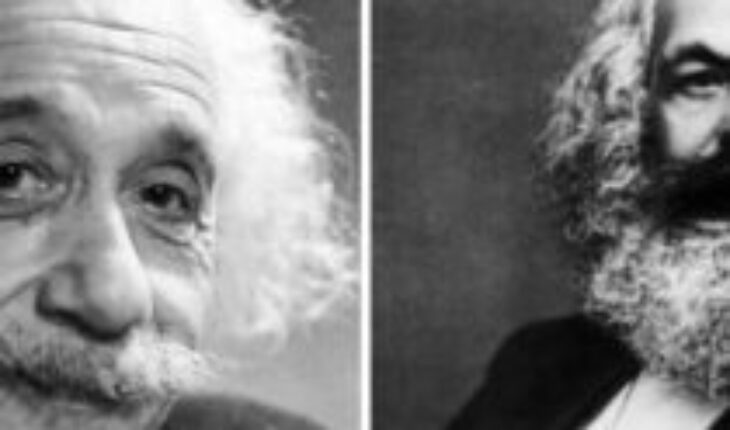Is it advisable for an inexperienced in economics to comment on the matter? According to Albert Einstein, it is. And well, who could deny Einstein, one of the brightest minds in human history, expressing his point of view on economics?
According to Einstein, astronomy and economics are similar in their purpose of finding general laws to explain a set of phenomena, but differ in their methodology. Unlike astronomy, Einstein explains, “the discovery of general laws in economics is made extremely difficult by the accumulation of factors that make it almost impossible to evaluate each factor in isolation.” For example, Einstein illustrates, “the conquests in the history of humanity that have allowed a privileged class to become economically and legally over the monopoly in the use of land, is a historical variable to consider to understand economic phenomena.” To the surprise of many, Einstein had a historical materialist perspective on economics. In fact, whoever reads your article Why socialism? (1) published in 1949 in the magazine Monthly Review, can only conclude that Einstein was a Marxist. Let’s review Einstein’s economic thinking below.
In the article in question, Einstein states directly and unambiguously: “The economic anarchy of capitalist society as it exists today is, in my opinion, the true source of evil.” Of course, for Einstein capitalism is not something neutral or positive, but negative. But what exactly does Einstein mean by capitalism? As we shall see, Einstein understands capitalism as Marx describes it in the three volumes of Capital. For Einstein, capitalism is a way of organizing the economy based on two social classes: the capitalist and the worker. “The capitalist,” in Einstein’s words, “is the one who has ownership and control over the means of production, and the worker, the one who enjoys no share in the ownership of the means of production.” In addition, it is important to emphasize that Einstein, as Marx does, does not write about private property in general, but about private ownership of the means of production, those means that allow the human being to satisfy his needs and develop his human potential.
According to Einstein, the problem with capitalism is that it imposes a set of rules that deprive workers of the fruit of their labor. “Workers only acquire a small part of their effort. This does not happen by force, but by imposing a set of legalized rules on society,” says Einstein. Similarly, Marx describes capitalism as a system of indirect coercion, where the worker is stripped of a part of the value that crystallizes in products, the so-called surplus value. “The productive capacity of a society necessary for the production of goods,” Einstein explains, “is legalized under the private property of certain individuals.” The owner of the means of production is in the privileged position of buying the worker’s labor power (hiring a worker in exchange for a wage) and appropriating the goods he produces and then selling them on the market. Like Marx, Einstein makes use of the concept of labor power, a central concept that Marx uses to explain the process of metamorphosis in his theory of value. On the other hand, the appropriation of goods by the capitalist is called alienation in Marxism.
Einstein goes on to point out, “The essential point about this process lies in the relationship between what the worker produces and what he is paid, both measured in terms of real value.” And then he explains, “what the worker receives is not determined by the real value of the goods he produces, but by his minimal needs and the competition generated by the number of workers competing for the same work.” This chunk closely resembles Marx’s theory of exploitation, where the worker is paid a wage to maintain his labor power that is not equivalent to the total value that crystallizes in the goods he produces and sells on the market.
In addition, Einstein suggests that private capital tends to be concentrated in a few hands due to competition and technological development that increases the division of labor and enables the formation of large companies at the expense of small companies. Similarly, Marx it states that competition between capitalists does not generate greater competition, but on the contrary, concentration and monopolies. “This leads to an oligarchy with so much power that not even democratically organized societies can regulate,” Einstein explains. “Political parties, financed or influenced by big capitalists, fail to protect the interests of the population, let alone those of excluded groups.” In this regard, Marx expounds something very similar on the basis of the conceptualization of the state as the central committee occupied with administering the affairs of the capitalist class. According to Marx, the state is not a neutral entity that arbitrates between the interests of the worker and the capitalist, but an entity that is concerned with promoting and protecting the interests of the capitalist class.
In relation to the press, Einstein states, “capitalists inevitably directly or indirectly control the media making it very difficult, and in most cases almost impossible, for citizens to reach objective conclusions about social reality.” In other words, private ownership of the media structurally impedes freedom of the press. At this point, Marx was one of the first to theorize about the production of ideologies and false consciousness, that is, the set of ideas that promote the interests of the ruling class and the difficulty of workers in understanding and defending their class interests. According to Marx, the circulation of ideologies is a consequence of the ownership and control that the ruling class possesses over the means of production.
Einstein concludes, “an economy based on private property not only fails in its basic purpose of meeting the needs of the population but in offering democratic spaces for citizens to exercise their rights and set their preferences.” “Capitalism is an economy oriented to profit, not to the satisfaction of citizens’ needs,” Einstein explains. In this regard, Marx affirms exactly the same thing: a profit-oriented economy is not capable of satisfying the needs of the population, much less enabling the democratic exercise of citizens. “Capitalism,” Einstein concludes, “does not even give the possibility to work to those who want to do so because employment is also scarce and determined by the requirements of the market.” This phenomenon is developed by Marx under the concept of the industrial reserve army, that is, the permanently unemployed workers fruit of the scarcity of wage labor in capitalist economies.
Was Einstein an accomplished Marxist? There is no doubt about it. Einstein’s economic thought was clearly inspired by Marx. And now, the question that one naturally asks, if one of the great geniuses of humanity ascribed to Marx’s economic thought, why is there still so much prejudice, contempt and rejection of Marx and his economic theory to the point that it is not taught or debated academically?
1 Einstein, Albert. 1949. “Why Socialism?” Monthly Review 1(1):9–15.
(https://monthlyreview.org/2009/05/01/why-socialism/)
Follow us on
The content expressed in this opinion column is the sole responsibility of its author, and does not necessarily reflect the editorial line or position of El Mostrador.





